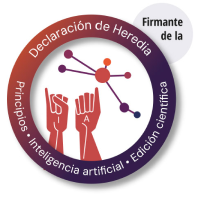 |
 |
 |
 |
 |
 |
 |
 |
 |
 |
 |
 |
Abstract
La defensa transnacional de los derechos de las mujeres que trabajan en las maquiladoras de México, fue uno de los temas principales de los debates internacionales sobre esta problemática en la década de 1990. Este artículo analiza una campaña de este tipo, organizada por activistas que recurrieron para ello al acuerdo laboral paralelo del Tratado de Libre Comercio (TLC) entre México, Estados Unidos y Canadá. Se plantea que los activistas de derechos humanos frecuentemente optan por limitar sus demandas a los derechos civiles y políticos en vez de ampliarlas para incluir los derechos económicos y sociales. Lo hacen así debido a restricciones institucionales y políticas, así como de recursos. El artículo concluye con algunas reflexiones más amplias sobre el futuro de la defensa transnacional de los derechos humanos.Open access policy
The authors who publish in región y sociedad accept the following conditions:
In accordance with the copyright laws, región y sociedad recognizes and respects the authors’ moral rights, as well as the ownership of property rights, which will be transferred to the journal to disseminate the articles in open access. región y sociedad does not charge the authors for submitting and processing articles for publication.
All the texts published by región y sociedad —with no exception— are distributed under a Creative Commons license 4.0 Attribution – Noncommercial (CC BY-NC 4.0 International), which allows third parties to use the publication as long as they mention the works’ authorship and the first publication in this journal.
The authors can enter into independent and additional contractual agreements for the nonexclusive distribution of the version of the article published in región y sociedad (for instance include it into an institutional repository or publish it in a book) as long as they clearly indicate that the work was published for the first time in región y sociedad.
For all the above, the author(s) must send the Letter of transfer of property rights of the first publication duly filled in and signed by the author(s). This letter can be sent by e-mail as a PDF to: region@colson.edu.mx






